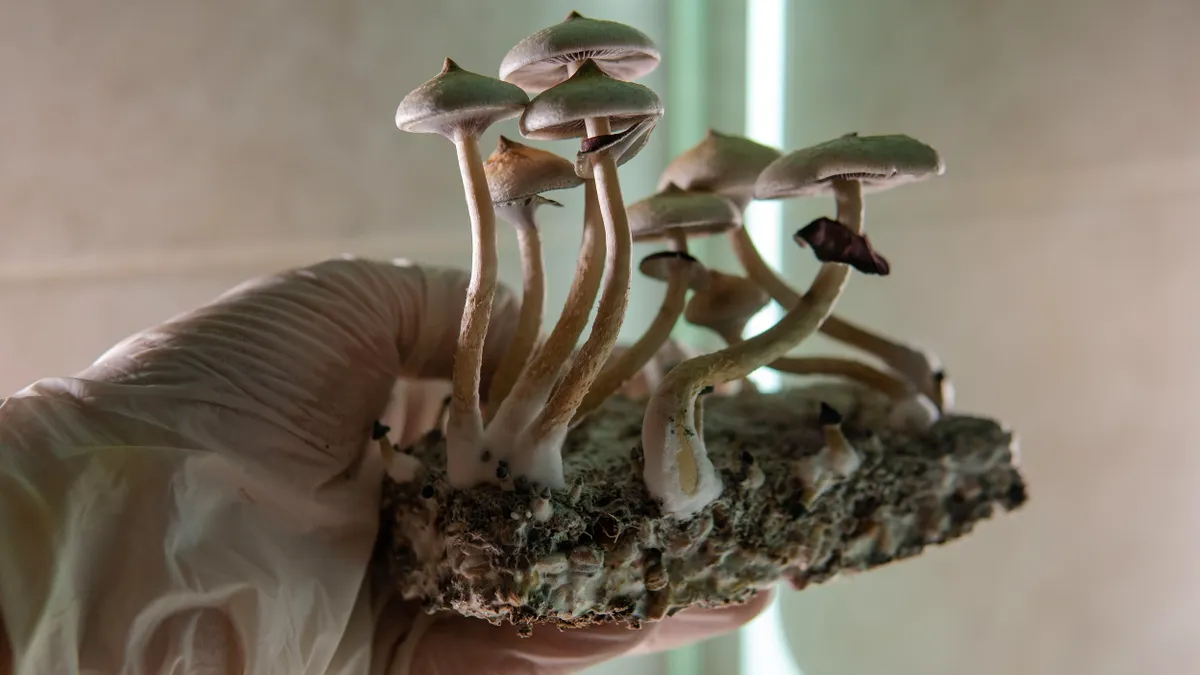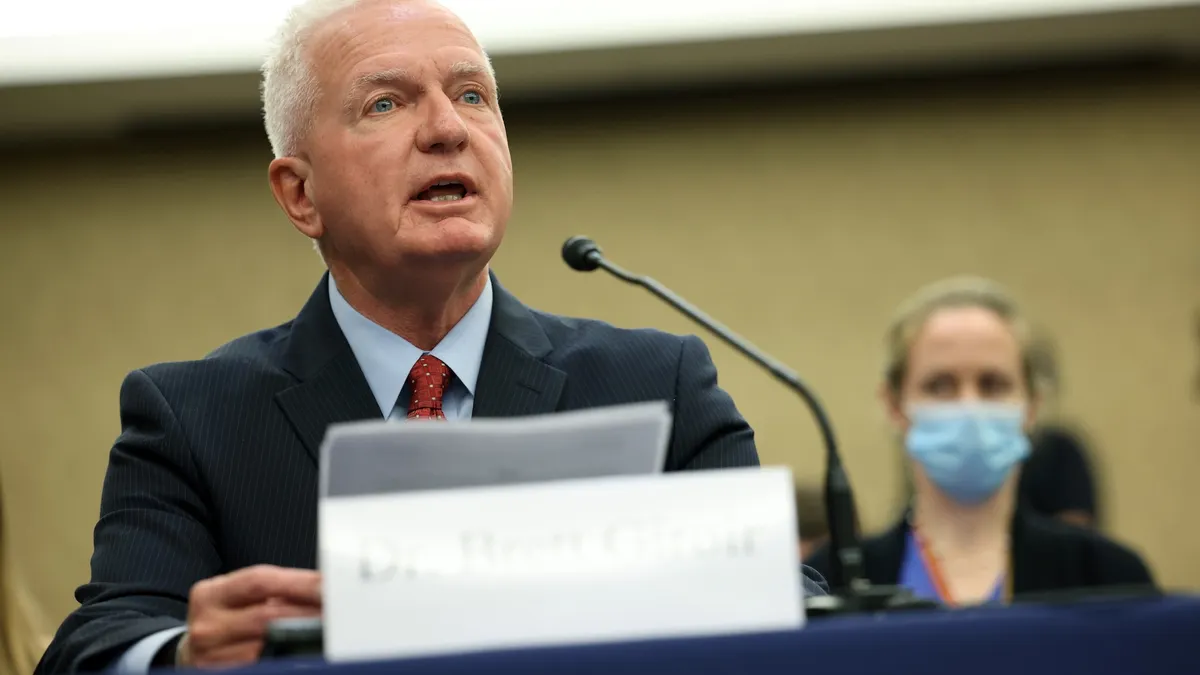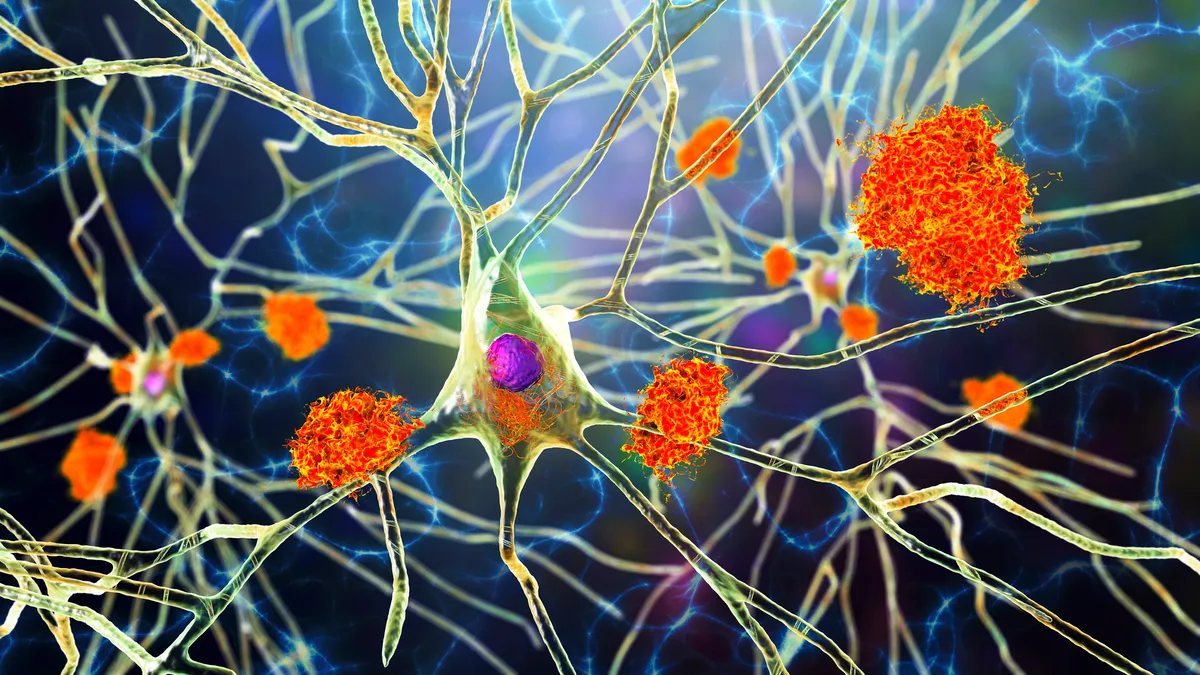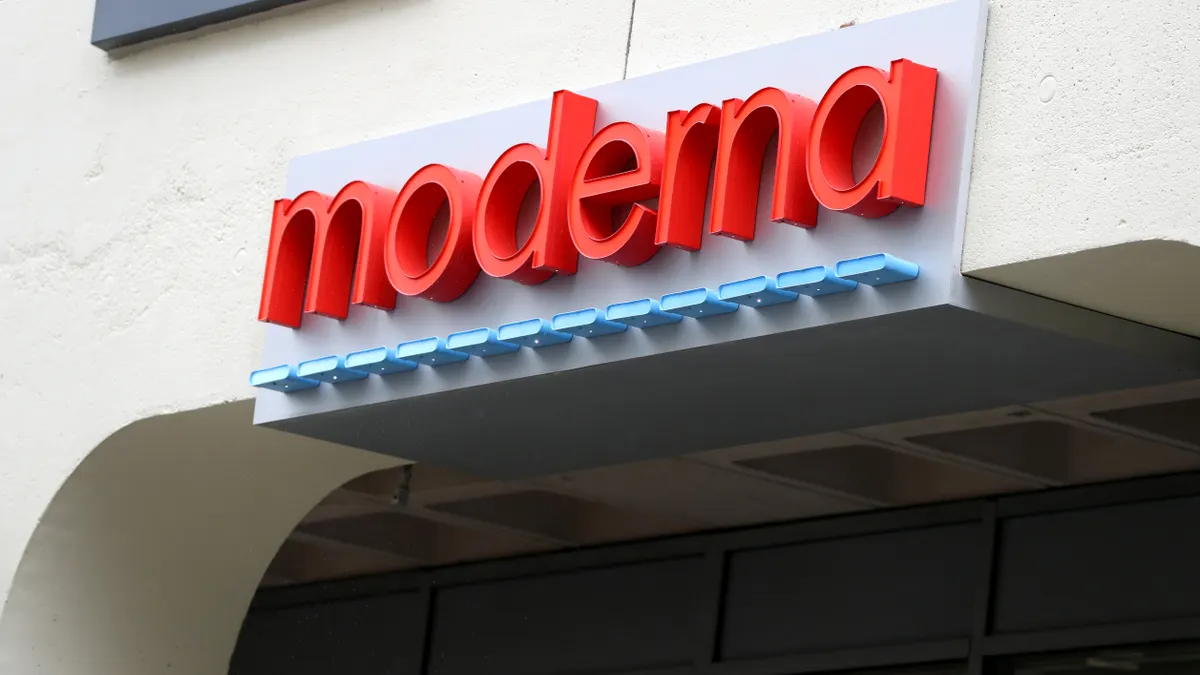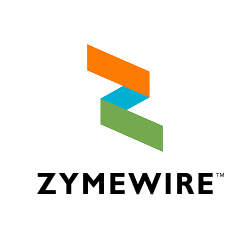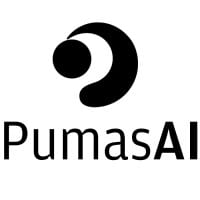A small, New Jersey-based drug developer plans to push an experimental psychedelic compound into late-stage testing now that it’s scored positive results in a postpartum depression study.
That study enrolled 84 women with moderate to severe postpartum depression, each of whom received a single injection of Reunion Neuroscience’s “RE104” and were then monitored for four weeks. Participants were split into two groups. One got the full, 30 mg dose of RE104, while the other got a far lower dose and served as an “active control” arm.
According to Reunion, the trial achieved its main goal as the 30 mg group showed significantly greater reductions on a widely used depression scale where lower scores indicate less severe symptoms. Seven days after treatment, scores in the experimental arm had fallen by 23 points, versus 17.2 points in the active control arm.
Reunion said researchers also saw “clinically meaningful” responses in the higher dose group that started the day they received their injections and lasted through the 28-day follow up. Just over 77% had scores that improved by 50% or more one week after treatment. In the control arm, 62% hit that milestone. Between the two groups, 71% of the former achieved “remission” of their depression symptoms at Day 7, compared to 41% in the latter.
Reunion said its drug — which functions similar to psilocybin, a molecule found in some psychedelic mushroom species — was well tolerated by patients. There were no serious adverse events, nor was there any treatment-emergent treatment-emergent seizures or suicidal ideation or behavior.
Anita Clayton, the trial’s lead investigator and the chair of psychiatry and neurobehavioral sciences at the University of Virginia School of Medicine, called the findings “promising” in a Monday statement from Reunion. She noted how postpartum depression affects roughly 15% of new mothers within a year of them giving birth. It is still the most common complication of pregnancy and childbirth in the U.S., with nearly 500,000 women diagnosed annually.
The only medicines approved specifically for PPD are Zurzuvae and Zulresso, both of which were developed by Sage Therapeutics. Sage stopped marketing Zulresso last year, though, and sales of Zurzuvae haven't grown quickly.
“Despite its prevalence and severity, current treatment options for PPD remain limited and are often slow-acting and burdensome, leaving many new mothers without timely, effective care,” Clayton said in a statement. “I look forward to the continued evaluation of RE104 in a Phase 3 trial and believe it could represent a significant shift in the treatment of maternal mental health disorders.”
Reunion also disclosed on Monday preliminary results from a clinical lactation study, wherein the level of metabolites in participants’ breastmilk was less than 0.1% of the 30mg RE104 they received. That’s “an order of magnitude below the level that might potentially cause risk to the infant,” according to Reunion, which “believes these results suggest that mothers who wish to return to breastfeeding following RE104 treatment may be able to do so with limited interruption.”
Based on the “favorable” data collected thus far, Reunion intends to push its drug into a Phase 3 trial that should begin next year and could tee up an approval application for postpartum depression. The company also wants to start, on the back end of 2026, a Phase 2 study focused on people with adjustment disorder related to cancer and other medical illnesses.
Reunion formed through a few years ago through the split of a predecessor company, Field Trip Health. It then went private in 2023 after agreeing to sell to MPM Capital in an all-cash deal that valued Reunion at roughly $13 million.
In the spring of 2024, MPM co-led a $103 million financing round for Reunion that drew investment from half a dozen other backers, including Novo Holdings, the parent company of Ozempic-maker Novo Nordisk.



